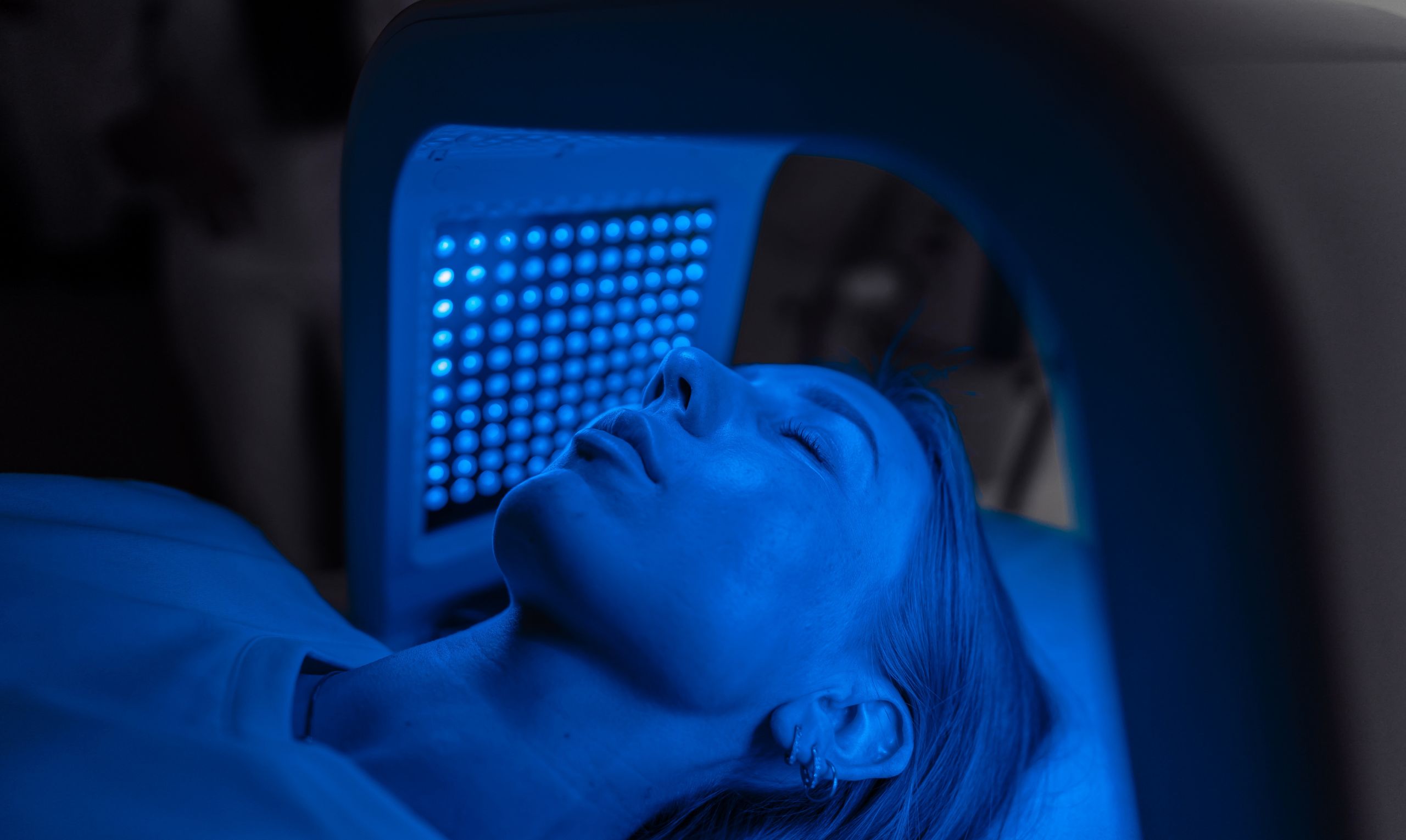Did you know that you can prevent skin cancer with blue light treatments in Kent Island? Blue light therapy can clear up acne, treat sun damage, and destroy precancerous spots. Here’s how it works and where to find it.
Blue Light Treatment for Skin Cancer

Photodynamic therapy can treat precancerous spots known as actinic keratoses. These red, scaly patches are the result of severe sun damage. Over time, they can develop into skin cancer. You can prevent this with blue light therapy.
To treat cancerous or precancerous spots with phototherapy, a dermatologist applies a photosensitizing medication to the treatment area. Abnormal cells convert this medication into a naturally occurring substance called protoporphyrin IX. This substance is highly sensitive to light. This means the abnormal cells in the area are sensitive to damage from the blue light, while the healthy cells receive no damage.
After the medication sits for a while, we shine a blue light onto the treated skin for about 15 minutes. The light kills the abnormal cells that absorbed the sensitizing medication.
After the treatment, the damaged skin flakes off, leaving healthy skin behind. This treatment is highly effective for people who have a lot of sun damage or precancers. It improves the appearance of skin as well as reducing the chances of developing skin cancer.
Blue Light Therapy for Acne
Another popular treatment is blue light for acne. Often, acne is caused by a bacterium called Propionibacterium acnes, or P. acnes. This bacteria lives on your skin and happens to emit its own photosensitizer, making it sensitive to blue wavelengths of light.
So, shining blue light onto acne prone skin can kill the bacteria responsible and clear up blemishes. Unfortunately, it’s not a magic cure and it won’t work for everyone.
Blue Light Therapy in Kent Island
Is blue light therapy right for me? Schedule a consultation with our skin cancer specialists in Kent Island and find out if blue light therapy can help you erase sun damage, treat precancerous cells, or get rid of your acne. Contact Cronin Dermatology and Skin Cancer Center today.

